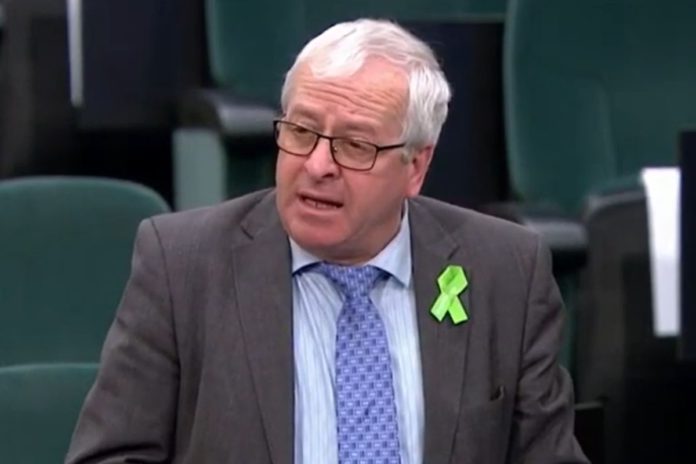According to the Rural Independent Group of TDs, surges in energy prices stemming from “zealous and poorly planned green policies” are the main driving forces behind spiralling living costs in Ireland.
Its leader, Deputy Mattie Mc Grath, has warned that “spiralling” inflation at record levels is having a “major” impact on workers and families.
The latest EU data indicates that inflation across the eurozone rose by a further record 5% in December alone.
McGrath believes this “destroys” the government’s argument that inflation is transitory, as increased price pressures remain high.
“Rising consumer costs on everything from groceries to home heating and electricity are having a crippling impact on Irish workers and families.”
Energy prices
He stressed that many households have experienced a “significant” income drop due to Covid-19 restrictions and lockdowns, while outgoings continue to climb.
“This is putting huge pressure on people’s finances and putting many into a financial crisis situation.”
“This week, for instance, a senior executive on the board of the ECB, Ms. Isabel Schnabel, warned that the green energy push aimed at tackling climate change is likely to keep energy prices higher for longer and may force the European Central Bank (ECB) to withdraw its stimulus and increase interest rates more quickly than planned.”
“We know that the crisis is far from over. Yet, recent consumer surveys show that spending is not coming back yet.”
“This signals that the runaway printing of money by the ECB, which our government previously supported, is not reaching ordinary households.”
“Instead, as we argued previously, this money printing is by and large going to the large corporations and banking institutes.”
The group claims that it has seen “little or no” urgency from the government to support households.
Addressing crisis
Last November, McGrath and the group brought forward a Dáil motion, seeking “actionable” measures to address energy and transport costs.
These included a:
- A myriad tax cuts on all energy bills;
- A €250 voucher for low-income households.
McGrath claimed that during 2021, the Government “stood idly by” and collected the increased taxes. This was at a time when energy companies increased prices on households through more than 30 hikes.
“Before these hikes, Irish households were already paying the highest electricity prices in Europe,” McGrath pointed out.
He described the government’s December announcement, to provide a payment of €100 to households to assist with electricity costs, as “grossly insufficient” to address inflationary pressures, which are “now out of control”.
He argued that such a government announcement was “measly” – with no implementation timeframe provided – and amounts to a scenario of “too little, too late”.
The deputy believes the group’s proposals set out “tangible and realistic” measures to address the record-high energy costs crisis.
“Unfortunately, like many other viable proposals our group put forward, they were rejected by the Government, who seemingly and regrettably prefers to play politics with such issues, rather than deal in the currency of real solutions.”
“We need to see structured governmental action on the crippling costs of living. The stagnant wages or welfare supports are not keeping pace with the skyrocketing inflationary increases, and this is leading to a 1970s style wage-price spiral,” concluded the deputy.





